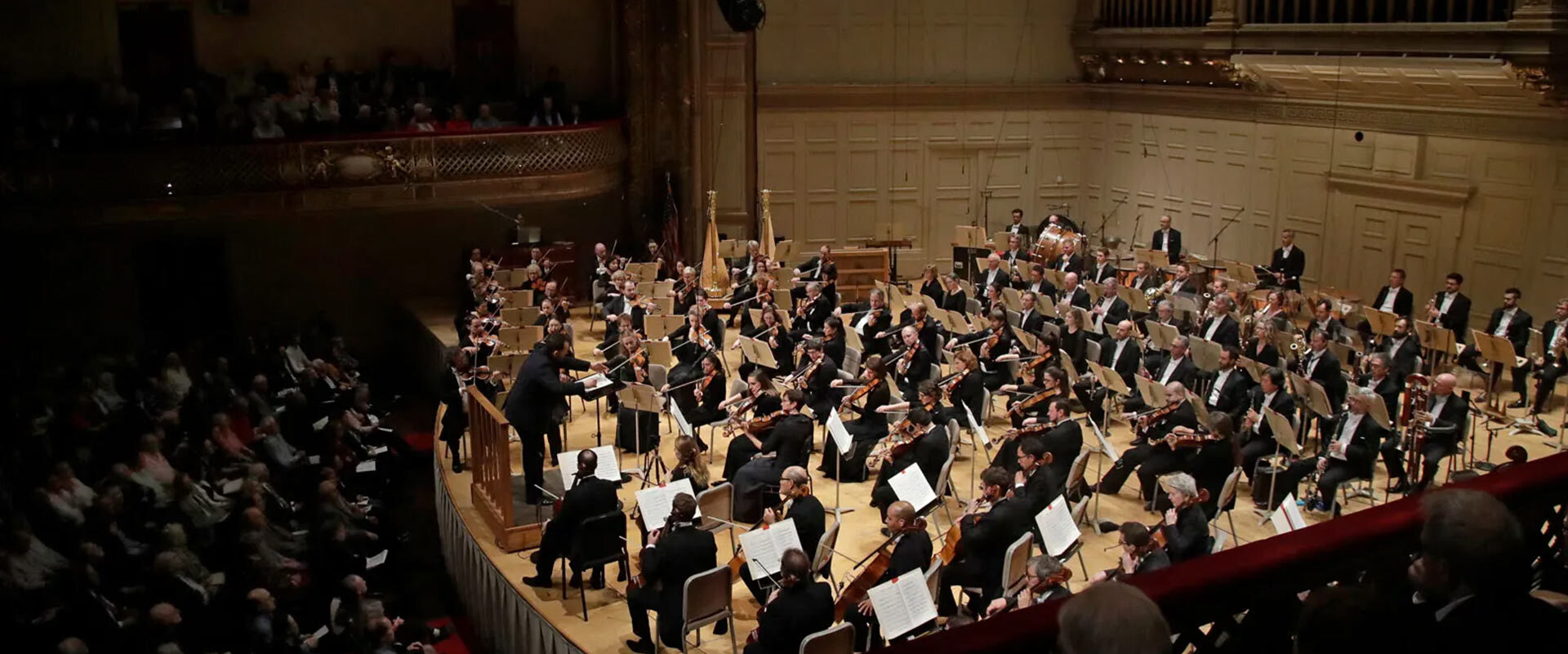
Article
Boston Symphony Orchestra: An unforgettable music experience just steps from Newbury Guest House.
There are few experiences more thrilling than live music, from the anticipatory hush and tingle as the lights go down to the emotional rush of sad or joyous sound, and, perhaps, the discovery of an electrifying composer or artist you’ve never heard before. It’s an incomparable feeling, and one that awaits just minutes from our hotel, courtesy of the Boston Symphony Orchestra. Here’s what to know about BSO and when and where to go:
A storied start
Boston Symphony Orchestra gave its first concert in 1881, realizing the ambition of its founder Henry Lee Higginson, who envisioned a great and permanent orchestra in his hometown. Today, BSO is one of the most revered and respected orchestras in the world, attracting top musicians and soloists and amassing a global fan base while remaining a cultural icon of the city. It’s the second oldest of five major American symphony orchestras known as the “Big 5”, which include other elites such as the New York and Los Angeles Philharmonic orchestras.
Helmed by acclaimed Latvian conductor Andris Nelsons, BSO is known for attracting both fans and newcomers with exciting, innovative programming, which it also shares worldwide via internet and through radio, television, educational programs, recordings, and tours. If you’re heading to town, these platforms are a great way to preview the depth and scope of its offerings.
Venue
BSO performs at Symphony Hall, located in the heart of Boston's Back Bay neighborhood, just a 15-minute walk or a 13-minute ride on the T’s Green Line. It opened in 1900 and is widely acknowledged as one of the top concert halls in the world. Symphony Hall is known for its exceptional acoustics, which Higginson recruited Harvard physics professor Wallace Clement Sabine to develop. Sabine used a mathematic formula to predict reverberation times before the Hall was even built to ensure the ideal reverberation of 1.9-2.1 seconds could be achieved. The walls of the stage slope inward to help push the sound out to the audience, and the deliberately shallow side balconies don’t trap any sound. The Hall is a beautiful space with coffered ceilings and 16 niches filled with graceful replicas of Greek and Roman statues related to music, art, and literature, and reflective of Boston’s designation as “the Athens of America.” The Symphony Hall organ, an Aeolian Skinner installed in 1949, is considered one of the finest concert hall organs in the world.
It's not Boston without the Pops
The legendary Boston Pops, a BSO offshoot established in 1885, has become almost as well known as BSO itself. Consisting primarily of BSO musicians, it’s known for a spring season of popular music (jazz and Gershwin are favorites), its December holiday program, and most spectacularly, its free Fourth of July fireworks concert at Hatch Shell on the Charles River Esplanade (a 20-minute walk from our lobby).
When to go
BSO’s main performance season runs September through May, followed by its fabled Tanglewood summer season in Lennox, an outdoor concert series that draws some of the biggest names in classical, jazz, and folk music.
Tickets
BSO tickets generally range from $100 - $500 based on program and seats, but there are bargains to be had. Under 40 years old? Score $20 tickets! And anyone can attend 10:30 a.m. open rehearsals for $18 and get insights from the conductor as a bonus. BSO also offers same-day rush tickets for $10 on Thursday evenings and Friday and Sunday afternoons. The good news is that due to the Hall’s relatively small size and unparalleled acoustics, there truly isn’t a bad seat in the house.
Where to stay
Regardless of what brings you to town, a Boston Symphony Orchestra performance is an unforgettable, not-to-be missed experience. Book your tickets now for the Fourth of July, Tanglewood, or BSO’s upcoming 2023-24 season, and while you’re at it, book a hotel where you can almost hear the brass section from your room. That’s Newbury Guest House, in case we didn’t mention it.